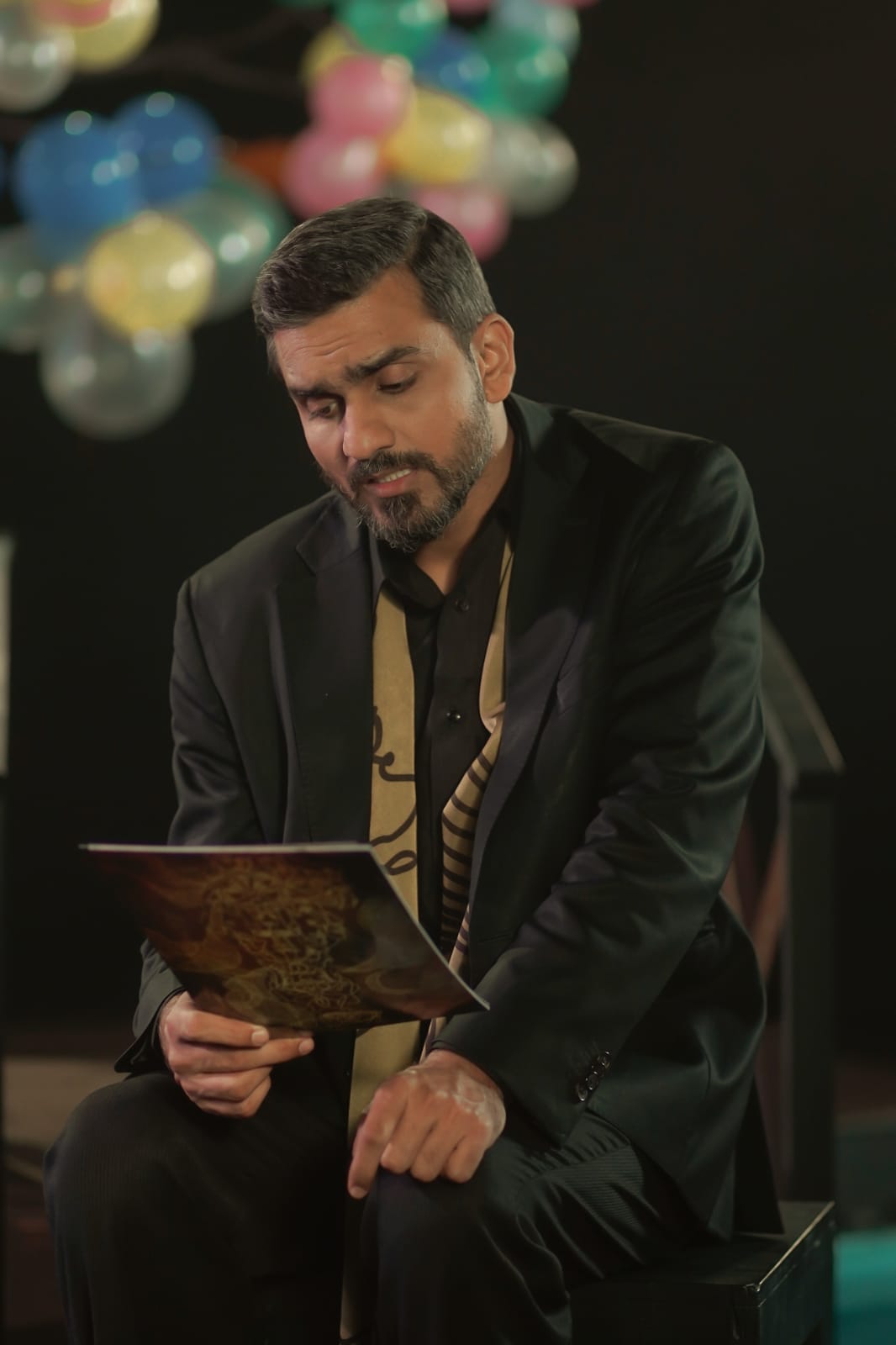
Be it for stage or screen – for Fawad Khan, well-known Pakistani theatre actor, every medium is a platform to showcase his craft, and his passion for performing arts. His upcoming work comprises Yaar Julahay — a series of dramatic readings on Zee theatre. He will be seen in its second episode, Garrm Coat, which will be showcased on Tata sky theatre in the coming week.
In conversation with Patriot, Khan speaks about his journey into the world of acting, upcoming projects and more. Excerpts:
Please tell us a little about your entry into the world of performing arts. How has the journey been till now?
Well, I always wanted to become a filmmaker. I was working towards a Bachelor’s degree in Physics when I saw an advertisement from The National Academy of Performing Arts (NAPA). They were offering theatre and filmmaking courses and I just left my BSc course and joined NAPA. I was part of the first batch of aspiring actors and filmmakers and the course opened up a whole new world for me. I fell in love with theatre and finished my three-year diploma from NAPA, majoring in direction for stage. After that I worked for the NAPA Repertory Theatre for a year-and-a-half as an actor and director. The first play I directed was There Is No End (Shesh Naai) by the great Indian playwright Badal Sircar.
Then of course television beckoned and I stepped into this world through an audition for a soap titled Shaista Shaista. Since then, I have mostly been doing theatre but on and off I have also managed to do television serials, some of which have earned a lot of audience appreciation.
You have had the privilege to have worked alongside the geniuses of Pakistan’s performing art industry. How have these experiences shaped your craft?
It is a privilege indeed, and I count myself quite lucky to have not just been a student of legends like Zia Mohyeddin and Rahat Kazmi but to also get a chance to work with them professionally. They have not only made a great impact on my craft as an actor but also on my life. It is difficult to sum it all up in a few words or paragraphs. Whatever I have achieved till this day, I owe it to my generous mentors and to NAPA.
From theatre, television, films and now OTT – you have acted in every platform. How different was the experience in each of these mediums?
I think the basics are the same for all the mediums. At the core of every discipline is that as an actor you are the part of a story and just need to do your best to convey it. In order to do that you have to adapt to the specifics of the medium you are engaging with. There are many subtle and obvious differences in acting for screen and for stage. Theatre is live and there are no retakes so you need to project emotions with your body language and voice in a way that is loud enough to be seen and heard by the people sitting in the last row. On screen, whether you are acting in a film, a television show or an OTT series, you more or less act with the camera in mind, need to be loud enough to be heard by your fellow actors and be mindful and aware of the framing of a sequence. But, as I said, the basics are the same for every format.
Churails was broadcast in India. Do you see it as a welcome change, given the socio-political situation?
I definitely think it was great that something created by Pakistani artists was made available in India. I feel sad that art, which has no borders and is an expression of universal emotions, should bear the brunt of political tensions. I really wish for the two countries to come to terms with each other and live together peacefully. I think Zee 5 and Zee Theatre are doing exceptional work to showcase subcontinental art and talent. Initiatives like Yaar Julahay for instance really help people connect with each other over shared stories.
Your latest project, Yaar Julahay is theatrical storytelling on camera. Please tell us a little about exploring this format.
As I said, it is a very special initiative because it reminds us all of our shared literary heritage. It was also quite unique in the sense that it was part theatre and part television. What I mean is that we were reciting a story for the camera but the aesthetics, the sets, the visuals were reminiscent of theatre. There was no realism here that we associate with the big screen so, in a way we constantly shifted gears as performers and story-tellers. I narrated Rajinder Singh Bedi’s classic story, Garrm Coat and reading it was a great experience as it is very close to my heart. The story depicts the inner conflicts of a husband and a father who almost loses his bearings when a hundred rupee note goes missing. I tried to give the character a certain dignity that I hope the audience will appreciate. There are many thoughts and feelings that the audience can distil from the narrative and I hope I have been able to communicate its essence successfully.
The likely Rs 1,000 crore sale of the Tehri Garhwal House, former royal residence on…
On the principle of 'Sarvajan Hitaya, Sarvajan Sukhaya' -- Welfare for all, Happiness for all…
With hundreds reported missing in Delhi this year, this guide explains how families can use…
The case came to light after a 35-year-old woman from Panipat alleged that she had…
During the investigation, CCTV footage helped identify the suspects, according to Delhi Police
The launch took place during the inauguration of the Delhi Police Exhibition Hall at Connaught…